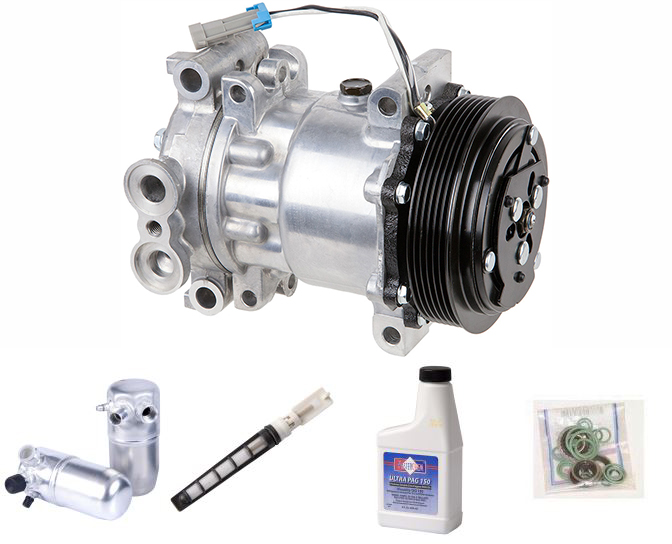
Air Conditioning Parts Auto AC Parts
1234yf, air conditioner maintenance, air conditioner repair, air conditioning, air conditioning compressor, car air conditioner, climate control, condenser, evaporator, R12, R134a, refrigerant. If you're having problems with your auto air conditioning system, here are the parts you should check.

Car Air Conditioning Schematic Diagram
The car air conditioning compressor is the power unit. It is a pump with a pulley attached and connected to the engine pulley via a serpentine belt. As the engine rotates, the compressor pulley spins along. It is also responsible for distributing the refrigerant or freon to other car ac system components.
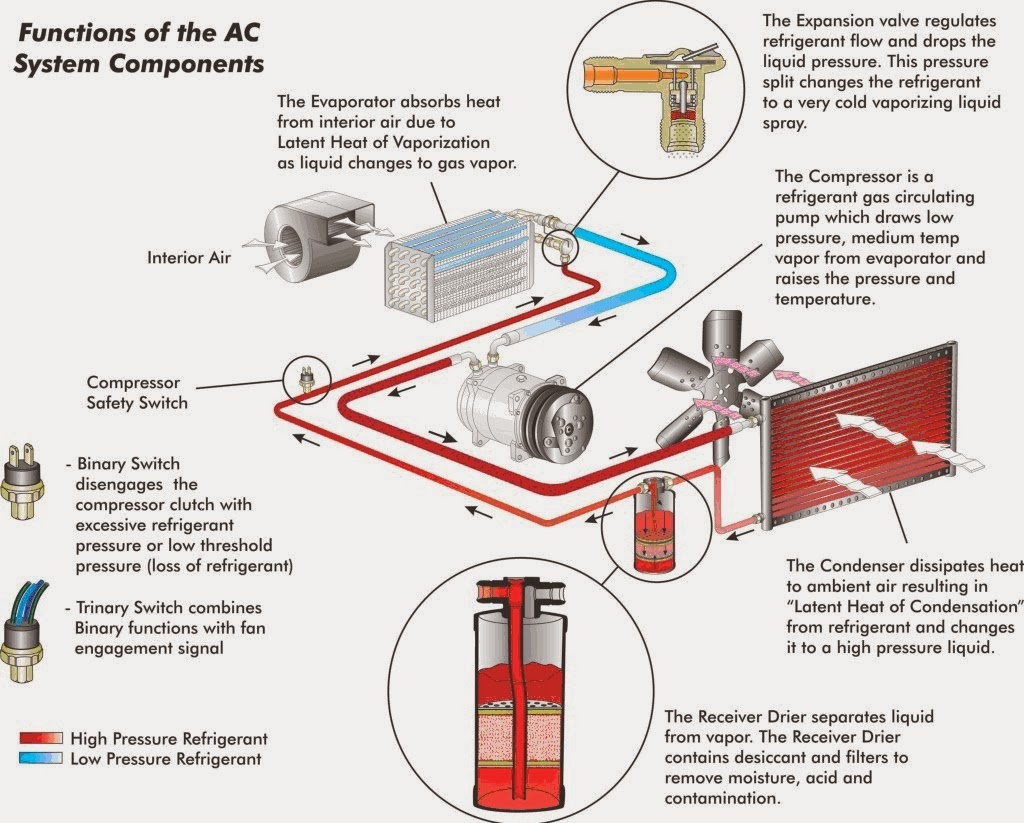
Automotive Ac System Diagram And Description
How Car AC Works. The car's AC system operates using a cooling cycle that involves various components and processes. Here is a detailed explanation of how a car's AC works: The cooling cycle begins with the compression of the refrigerant by the AC compressor. The compressor operates using power from the vehicle's engine or an electric motor.

Automotive Air Conditioning System Components and Operation Coolco
We make it easy to find the parts that fit your vehicle and your AC system. Please feel free to call us Toll Free at 1-800-726-2310 or Email Us with technical questions about your auto air conditioning system or ordering help. Huge selection of quality OEM and aftermarket auto air conditioning parts direct to public and professionals at.
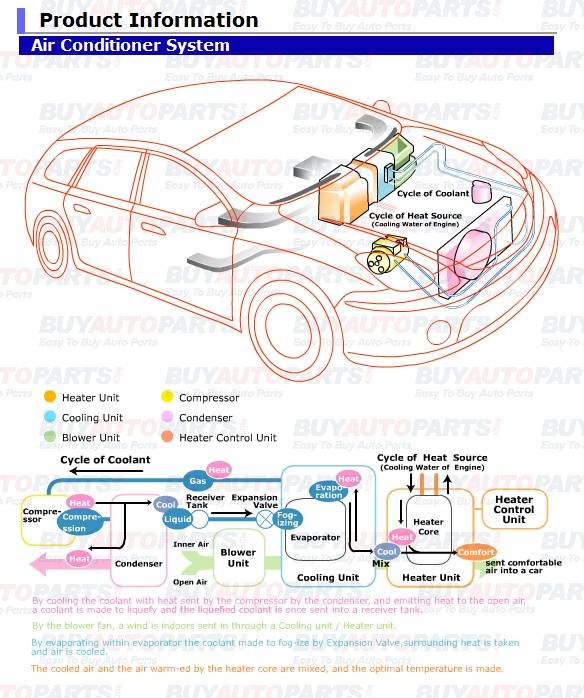
Car AC Basics
Your Car's AC Components . Your air conditioning system is made up of a compressor, a condenser, an evaporator (or drier), refrigeration lines, and a couple of sensors here and there. Here's what they do: Compressor: This is the heart of your AC system. The compressor is what takes the refrigerant (the gas) and pressurizes it, so it will absorb.

How Does Car Ac Work
Components of Car AC system. The Car Air Conditioning system has almost the same components as a room's AC. But as the Car is smaller than a room, there are a lot of modifications made in it so that it can compactly fit in the space. The major components used in Car's AC are: Compressor. The compressor of the AC is known as the heart.
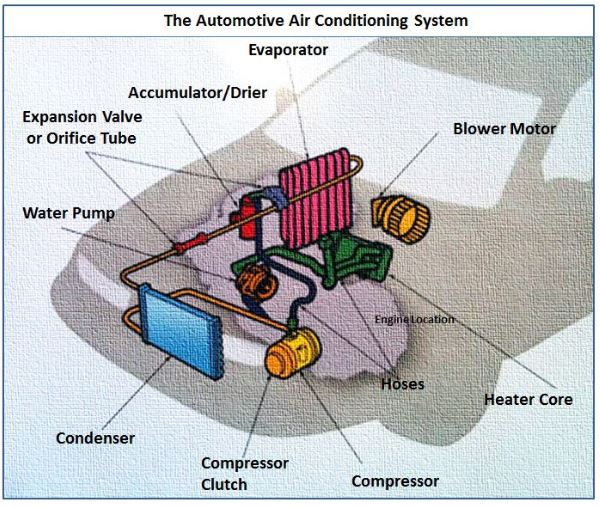
Diagram Of Car Airconditioning Parts
The controlling system used to control the temperature of the car by sensing it and control the refrigerating system. Air conditioning has two main purposes: 1. Cools the air entering the passenger compartment. 2. Removes the moisture from the air so it feels more comfortable inside the vehicle. Components of Car AC.

Schematic Diagram Of Car Air Conditioning System
JEGS offers automotive AC system components and heater parts from top vendors such as Vintage Air, Classic Auto Air, OER, Dorman Products, JEGS, and more. Each of these parts are made from high quality components and assembly to provide long-lasting and reliable operation. Browse our full line of truck and car heater parts as well as automotive.

Ac System In Car Diagram
Main Components of a Car AC System. The car air conditioning (AC) system consists of several key components that work together to cool and dehumidify the air inside the vehicle. Understanding the main components can help car owners diagnose and troubleshoot AC issues effectively. 1. Compressor. The compressor is the heart of the car AC system.

Diagram Of A C System On Car
Compressor. Firstly, think of the compressor as the heart of your air conditioning system. Its primary role involves pressurising and heating up the refrigerant (the substance that cools the air). With the pressure reaching up to 250 psi. The compressor then causes the refrigerant gas to heat before sending it onward to the next part in line.

What's the Difference Between Your Car’s Air Conditioner & Heater? In The Garage with
Car air conditioning systems work using a process called refrigeration. The system consists of several components, including a compressor, condenser, expansion valve, and evaporator. Here's a simplified explanation of how it works: 1. Compression: The compressor pressurizes a refrigerant gas, typically a compound called R-134a, raising its.

DIFFERENT COMPONENT OF CAR AIR CONDITIONING SYSTEM COMPONENT LIKE COMPERSSOR, CONDENSER, DRYER
Air conditioning has worked pretty much the same way for its entire existence: it cools and removes humidity from the air. There are three main parts to the system -- the compressor, condenser, and evaporator -- that achieve this, plus a few other parts to keep the system running smoothly. Let's take a look at each. Contents.
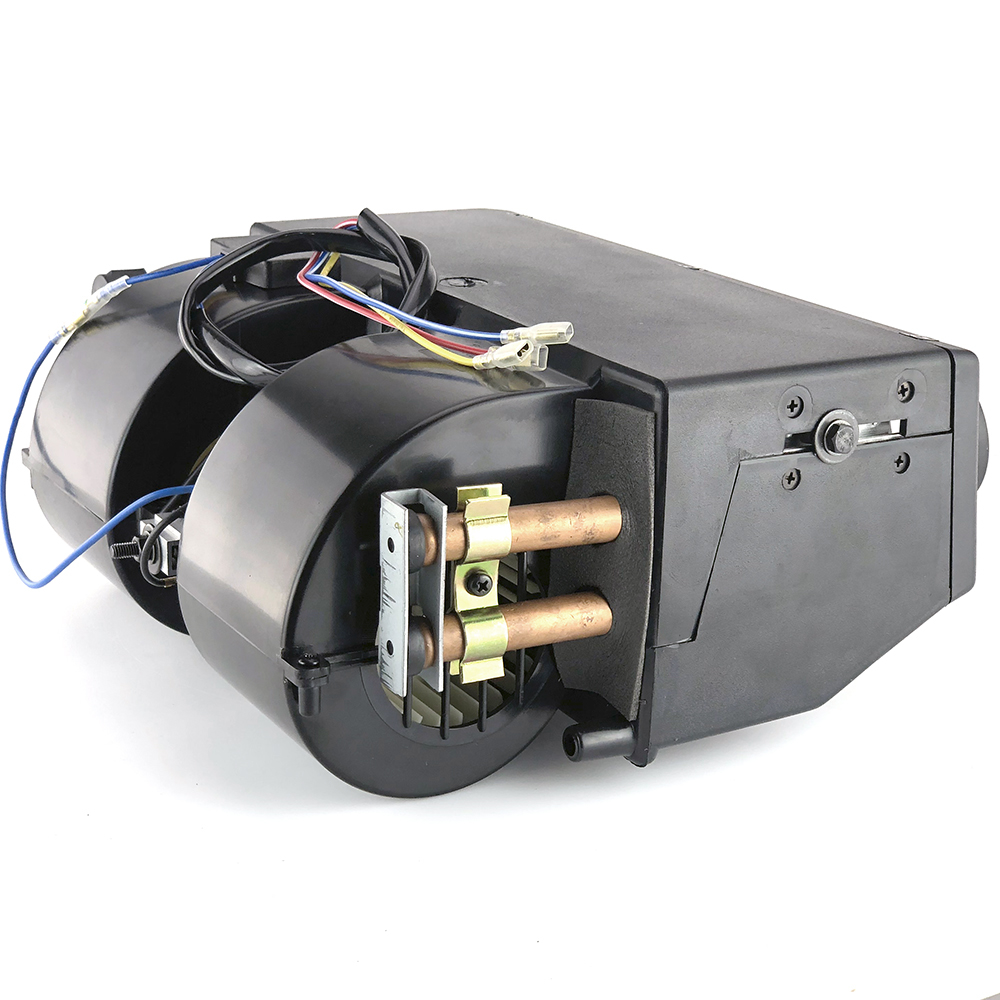
Universal Air Conditioning Unit With Heater Car Builder Kit & Classic Car Parts Specialist
The Leader in AC Parts for over 20 Years At DiscountACParts.com we carry AC parts for every type of vehicle. We offer the highest quality air conditioning compressors, AC kits, AC condensers, evaporators and more! We have thousands of AC parts in stock, ready for immediate shipping. Our USA based air conditioning specialists can help you find what you need.
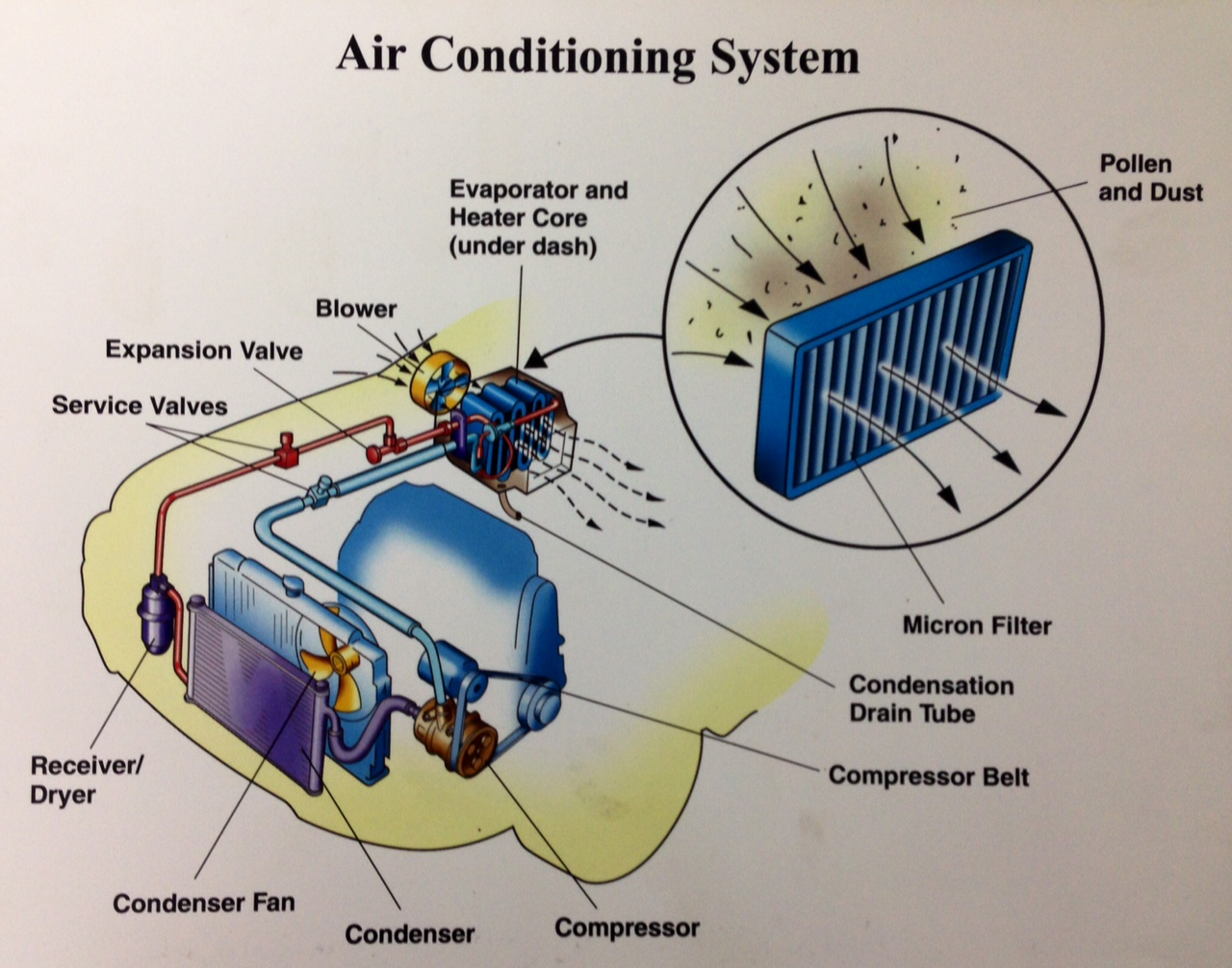
Car Ac Components Diagram
Components of Car AC System. A car AC system is a complex network of components that work together to provide cool and comfortable airflow. Let's explore the key components of a car AC system: Compressor; Condenser; Receiver Drier or Accumulator; Expansion Valve or Orifice Tube; Evaporator; 1. Compressor: The compressor is the heart of the.

Vehicle A/c System Diagram
Most car AC systems have five essential parts: the compressor, condenser, evaporator, receiver-dryer, and an expansion tube. Some vehicles may have an orifice tube instead of an expansion tube. If all these components are functioning optimally, your car's AC system should work great. If there is a problem, though, the system may not keep you.
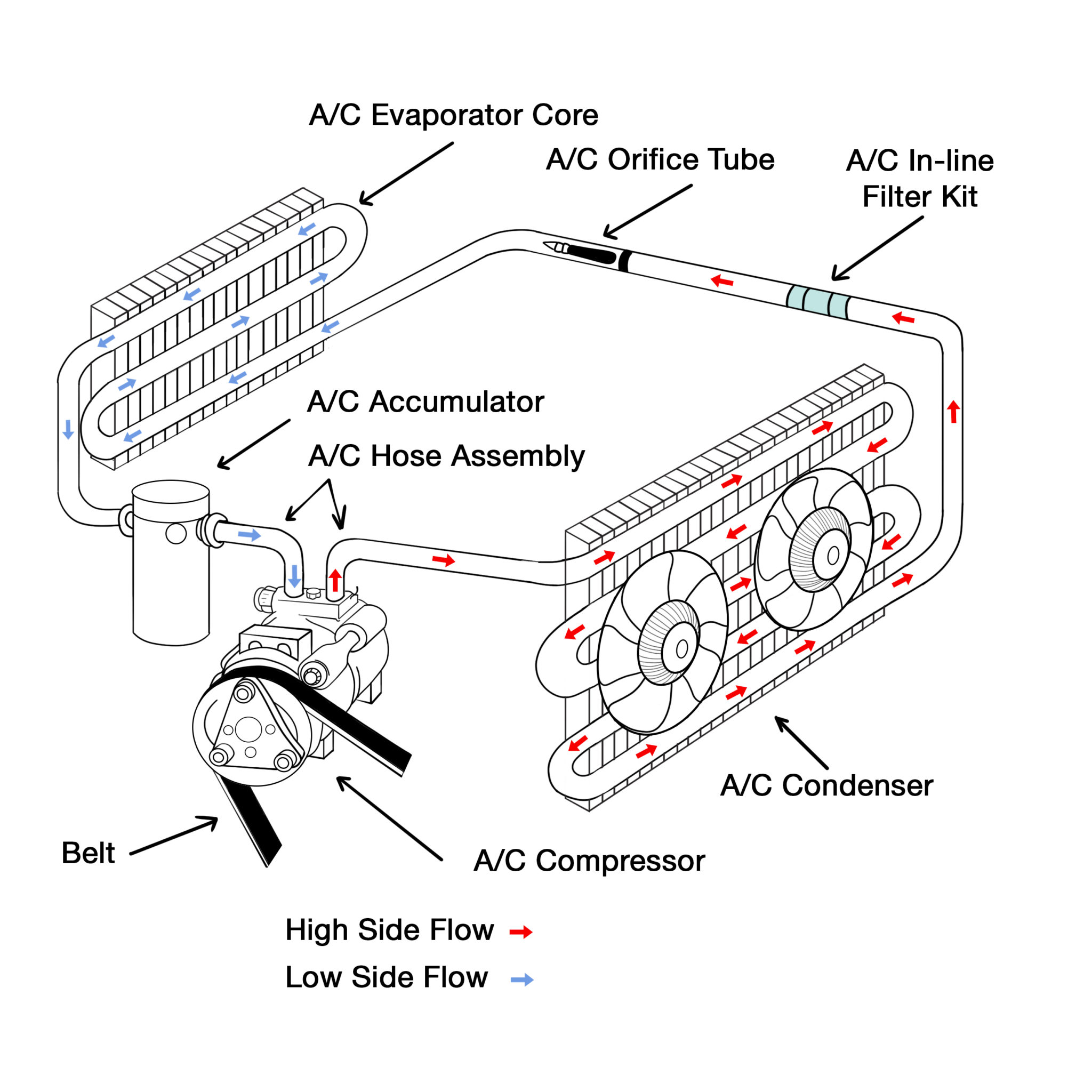
How Your Car’s AC Works AutoZone
Scroll down to see a step-by-step breakdown of how refrigerant travels through your car's AC parts. *Air conditioning systems will use either an orifice tube/accumulator or an expansion valve/receiver-drier set up. Some vehicles that have a rear AC system can use a combination of the two with an additional evaporator.